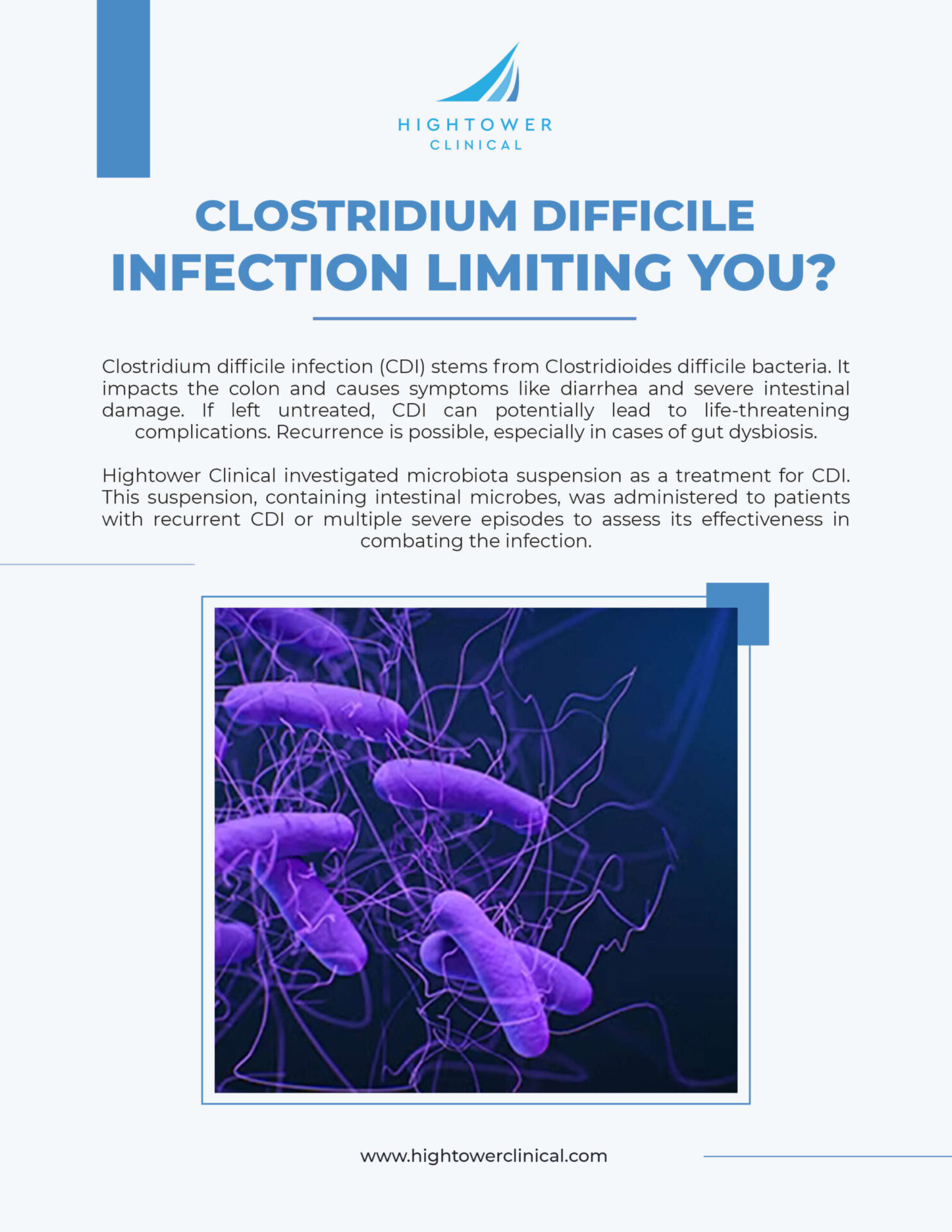CDI is typically diagnosed through stool tests to detect C. difficile toxins. In some cases, additional tests like colonoscopy may be required for confirmation.
Clostridium Difficile Infection (CDI)
Hightower’s past investigations into C. difficile infection led to advancements in managing this challenging condition.
Know About Clostridium Difficile Infection (CDI)
Clostridium difficile infection is caused by Clostridioides difficile bacteria. It affects the colon and can lead to various symptoms, ranging from diarrhea to severe intestinal damage. If untreated, the infection can pose life-threatening risks. If there is gut dysbiosis, it can reoccur.
Hightower assessed a suspension of intestinal microbes, known as a microbiota suspension, to treat Clostridium difficile infection (CDI). The investigational suspension was given to patients who had experienced at least one recurrence of CDI or had endured at least two episodes of severe CDI.
Current Status
Not Recruiting
Study Count
1
Clostridium Difficile Infection (CDI) Clinical Trials
| Study Name | Protocol Number | Sponsor |
|---|---|---|
| Clostridium Difficile Infection (CDI) | Punch CD3-OLS | Rebiotix Inc. |
Frequently Asked Questions
What are the risk factors for Clostridium difficile infection?
Risk factors for CDI include recent antibiotic use, hospitalization, advanced age, underlying health conditions, and a weakened immune system. These factors can disrupt the natural balance of gut bacteria, increasing susceptibility to CDI.
What should I ask the research team before joining a clinical trial?
Ask about potential risks and benefits, what the trial involves (tests, procedures, etc.), compensation (if any), and how long you’ll be expected to participate.
What if I don't have health insurance? Can I still participate in a clinical trial?
Some clinical trials may cover the cost of medical care associated with the study, regardless of your insurance status. Discuss this with the research team for specifics.




